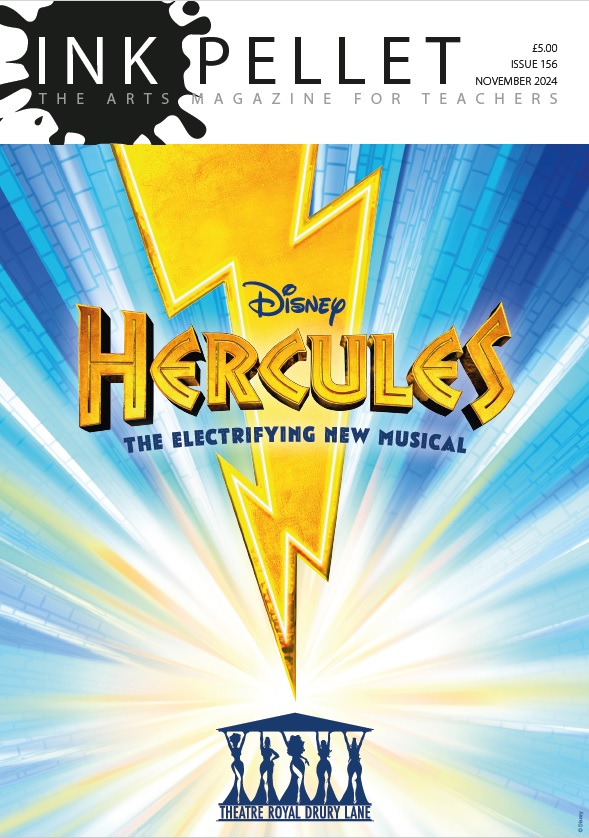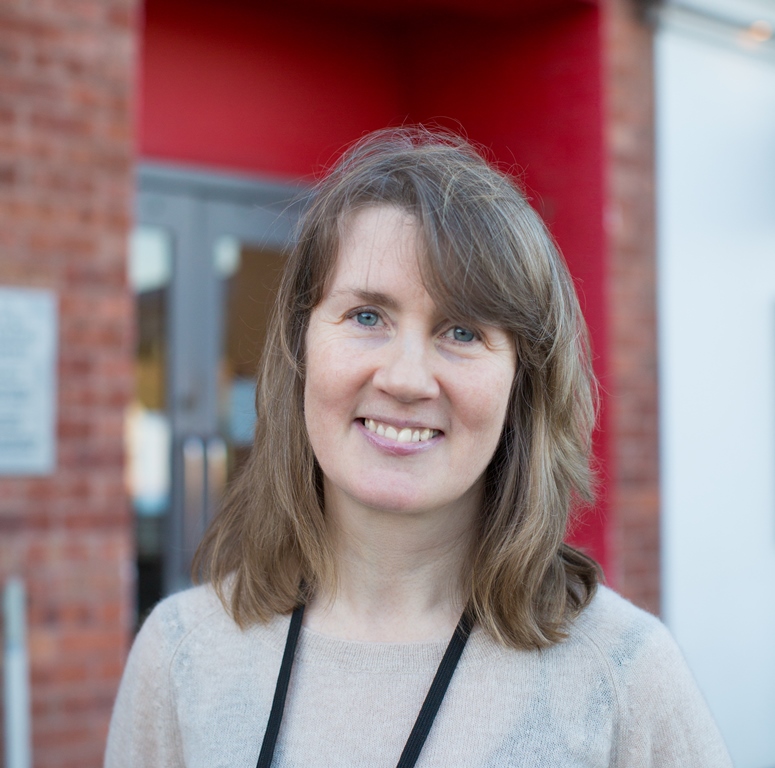Jacqui O’Hanlon, 56, is Royal Shakespeare Company’s Director of Learning and National Partnerships. Susan Elkin spoke to her for Ink Pellet.
Jacqui O’Hanlon is a petite powerhouse of passion for Shakespeare and everything his writing can do – it enhances every other aspect of life. Most enlightened teachers know a child who has suddenly blossomed in confidence and got better at maths, for instance, after actively meeting Mr Shakespeare.
Above all, Jacqui’s probably the country’s most determined advocate of making Shakespeare accessible to everyone regardless of background. I have known Jacqui for a long time but hadn’t seen her for a while so, inevitably the Pandemic and its effects was the first thing we talked about – sitting in the air conditioned, calm oasis of RSC’s London office over tea and water.
“The last two years have been an extraordinary time of change and discovery” she says. “There were terrible things and wonderful things. One of the best aspects was the way the RSC partnerships – with schools, theatres, adult communities and groups – not only hung together but strengthened. I think we all just needed to be connected.”
Meanwhile, Jacqui explains, the company which had actors on contract without much to do, did Zoom sessions, devised a show for early years, read sonnets and poems for elderly people, along with live streaming and anything else anyone could think of. “It was actually strengthening because we realised just how important we all are to each other, and we are now building on that” she says.
First, I want to know how Jacqui got into this work in the first place which makes her chuckle. “My parents both worked in the Longbridge Car Factory in Birmingham, which was like a self-contained town. I didn’t do well at school and left with three O-levels. My father took the view that ‘A levels are not for people like us’ and the arts were not part of our lives. But at school Jacqui had encountered an inspiring English teacher who opened the doors for her with Shakespeare and drama. “There was a two-hour workshop on The Winters Tale and it filled me with joy. I felt I was being given all the secrets to understanding it and it left me with full appreciation of the impact a short workshop can have.”
Eventually, having worked for a while, Jacqui went to University of Birmingham as a mature student to study Drama and Theatre Studies. “It was an unbelievable three years. I had a mature student’s grant and I could hardly believe that I was there and funded to do what I love most” she says. After that she formed, with friends, Custard Factory Theatre Group (no prizes for guessing where it was based). They did radical adaptations of Shakespeare which toured schools with the support of an Arts Council grant. “Thus I became a Theatre in Education (TiE) actor working all over the country – and a constant puzzle to my parents!”
Jacqui then went to the RSC on a ten-month contract. She has been in her current role, formerly known as Director of Education, for 14 years. She was created MBE for services to the arts in the 2022 New Year Honours – proving yet again that, yes, Shakespeare really is for people like her and everyone else, irrespective of background.
So, what are she and her department of 19 full-timers and 45 freelances focusing on at the moment? A very clear thinker, and used to public speaking, Jacqui lists the initiatives for me.
“First, we have an endowment and a research grant from the Paul Hamlyn Foundation to devise a new set of measures to identify the difference that working with Shakespeare makes to young people’s language development and attitude. It’s piloting now over two years in 60 schools, all of which have over 50% of their students on free school meals.”
She explains that there is always a control group and that they’re getting round the ethics of this by giving class A the Shakespeare experience, but not class B in the first year and then reversing that in the second year so that no one is deprived of anything. “Eventually we shall share our measures with anyone who wants to use them so there will be clear evidence of the real transferable difference that Shakespeare makes to education experience.”
Jacqui’s second initiative is the devising of a new Shakespeare curriculum and working out what changes the RSC should make. “Young people need to interact and take on creative roles” Jacqui says. “These are plays, not books to be read like novels. We are including strands that really interest young people such as eco-concerns as a lens through which to view the plays too.” This will be available online and in person – much of it free – from September 2023.
Third, is the expansion of the Associate Schools Programme. At present there are 25 clusters of schools across the country. “We’re looking to add a further ten” says Jacqui. “It provides opportunities for artists to learn together because some of the work is rehearsed in the regions and it’s all linked with touring work.”
Jacqui continues: “Fourth is our growing Youth Leadership Programme. We have 450 Shakespeare Ambassadors aged 7-18 whom we support and train. These are young people who want more people to have access, so they run workshops for parents and take projects into, say, a local car park or shopping centre. From this comes our Youth Advisory Board which they can apply to join. We’re looking to run a Youth Symposium to which we’ll invite youth leaders to talk about the effectiveness of this work.”
Fifth, is the RSC’s Next Generation: Act, Direct, Backstage project. “This is fully funded. They come at 13 and grow up with us” Jacqui says, adding that the first recruits are now “graduating” at 16 and going into a wide range of fields. “It’s a hugely life-enhancing experience because so many young people have no idea that these roles exist in theatre as possible career choices.”
Then, sixth, there’s the RSC’s apprenticeship scheme, which is to be expanded to 25 posts, with a manager, in 2023 including costumes, props and automation. “The diversity is there. It’s all about pathways” says Jacqui.
Coming up this autumn is the RSC’s first post-Pandemic First Encounters production. An abridged version of Twelfth Night it will tour schools and clusters in the Midlands and the North, this month and next. “Young people have making skills and we’re particularly pleased that the set for this show has been made by Ormiston Academy students entirely from sustainable materials” says Jacqui.
“We’re also delighted to launch new learning resources for Matilda the Musical” continues Jacqui. “It’s such a life-affirming show – a homage to teachers really! We’ve devised a new workshop programme and made it very easy for teachers to plan a trip with everything all in one place.”
Yes, the RSC is a great deal more than a production company. Its Learning and National Partnerships Department is clearly a very busy and innovative part of its work. And Jacqui is an inspirational leader with a lot on her plate. So I am not surprised that our time together has to be strictly limited to the hour it was booked for – as we bid each other goodbye and I head into busy Covent Garden, reflecting on the wonders and knock-on effects of the world’s most famous playwright.
Matilda the Musical Resources:
www.matildaschoolresources.com



